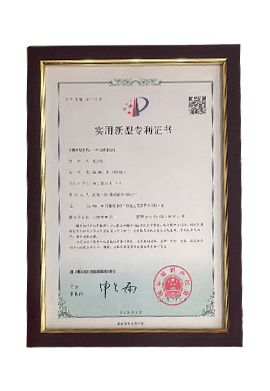poultry litter windrower
The Essential Role of Poultry Litter Windrowers in Sustainable Agriculture
Poultry farming is an integral part of the agricultural landscape, providing a significant source of meat and eggs for countless consumers worldwide. However, the management of poultry litter—a byproduct of poultry production that consists of manure, bedding, and spilled feed—poses a unique challenge for farmers. Improper handling and disposal can lead to environmental concerns, such as nutrient runoff into water bodies, which can cause eutrophication and harm aquatic ecosystems. To mitigate these issues, the use of poultry litter windrowers has emerged as a solution that not only manages waste effectively but also enhances soil health and supports sustainable agricultural practices.
Understanding Poultry Litter Windrowers
Poultry litter windrowers are specialized agricultural machines designed to manage and process poultry litter. These machines create long, narrow piles or “windrows” of litter that aid in its aerobic decomposition. By turning and aerating the litter, windrowers facilitate the breakdown of organic matter, reducing odors and pathogens, and transforming it into a valuable resource high-quality compost.
The basic operation of a poultry litter windrower involves collecting litter from the poultry houses or from the litter spread on the ground. The machine then shapes this collected material into windrows, where it can undergo composting. During this process, microorganisms break down the organic materials, leading to a nutrient-rich compost that can be used as a soil amendment. The effectiveness of windrow composting depends on various factors including moisture content, temperature, and the carbon-to-nitrogen ratio of the litter.
Environmental Benefits
One of the primary benefits of using poultry litter windrowers is their positive impact on the environment. By promoting the aerobic decomposition of poultry litter, windrowers help reduce the emission of harmful gases such as ammonia and methane, which are typically released during anaerobic decomposition. This process not only minimizes odors that can be bothersome to nearby communities but also lessens the overall greenhouse gas footprint of poultry farms.
Moreover, when properly managed, composted poultry litter can enhance soil fertility and structure. The nutrients present in the decomposed litter, such as nitrogen, phosphorus, and potassium, are essential for plant growth. When applied to croplands, composted litter improves nutrient availability while also enhancing soil aeration and water retention. This can lead to healthier crops and reduced reliance on synthetic fertilizers, aligning with sustainable farming practices.
poultry litter windrower

Economic Implications
In addition to environmental benefits, poultry litter windrowers can offer economic advantages to farmers. The ability to manage litter on-site allows poultry producers to capitalize on waste as a resource rather than a liability. By converting litter into compost, farmers can create a marketable product that can be sold to other agricultural producers or used within their own operations to improve crop yields.
Furthermore, the efficient management of poultry litter through windrowing can result in lower disposal costs. Traditional methods of litter disposal, such as landfilling or transportation to distant composting facilities, can be expensive and time-consuming. By utilizing windrowers, farmers can streamline their operations and potentially reduce costs associated with waste management.
Challenges and Considerations
Despite the numerous benefits of poultry litter windrowers, there are challenges associated with their use that farmers must consider. Proper maintenance of windrowers is essential to ensure they operate efficiently. Additionally, farmers must be knowledgeable about the composting process, including the optimal conditions for aeration and moisture control, to maximize the effectiveness of the windrowing technique.
There may also be regulatory considerations regarding the application of poultry litter as compost. Farmers must be aware of legal requirements and best management practices to ensure compliance with environmental regulations.
Conclusion
Poultry litter windrowers represent a pivotal innovation in the realm of poultry farming, addressing waste management concerns while promoting sustainability. Through effective management practices, these machines not only help in creating valuable compost but also contribute to healthier ecosystems and improved agricultural productivity. As the demand for sustainable practices in agriculture continues to grow, the role of poultry litter windrowers will undoubtedly become more prominent—transforming waste into a resource and fostering a more sustainable future for the agricultural industry.
Latest news
-
Mini Combine Harvester for Soybean | Compact & Efficient Soybean Harvesting SolutionsNewsNov.24,2025
-
Mini Combine Harvester for Paddy – Compact, Efficient Rice Harvesting SolutionsNewsNov.24,2025
-
Mini Chain Harvester: Compact Forestry Solutions for Sustainable LoggingNewsNov.23,2025
-
Kartar Mini Harvester – Compact, Efficient Harvesting Machinery for Small FarmsNewsNov.23,2025
-
Compact Power: Elevate Your Farming with Harvesting Machine SmallNewsNov.22,2025
-
Discover the Power and Potential of Harvester Mini Combine Machines | Efficient Small-Scale HarvestingNewsNov.22,2025








